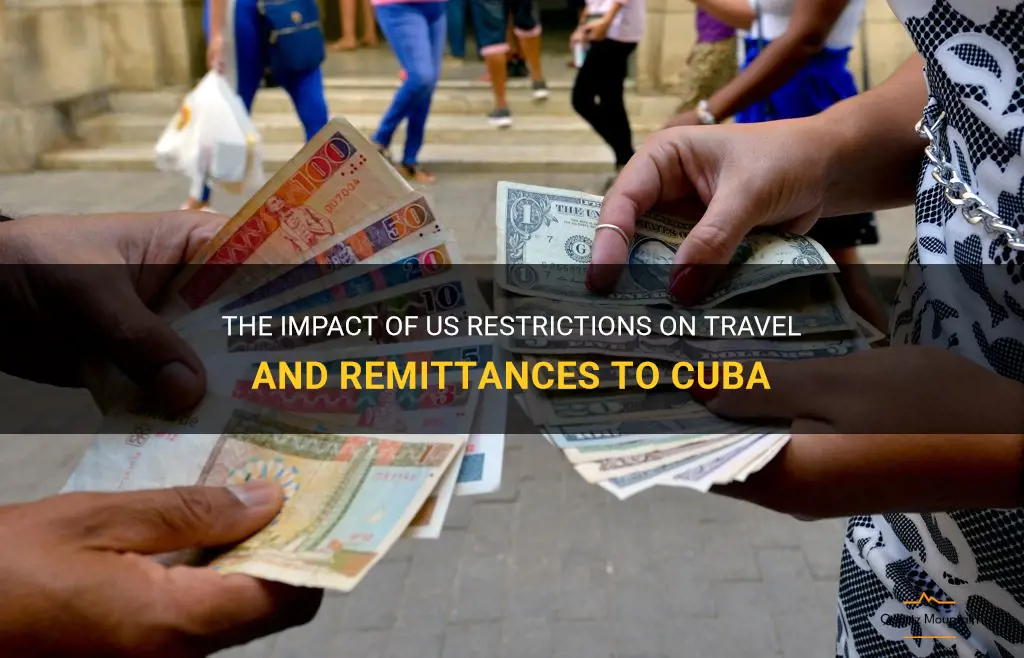
Cuba, a vibrant and captivating island nation in the Caribbean, has long been a complex and enigmatic place for travelers. For decades, the United States has imposed restrictions on travel and remittances between the two countries, adding another layer of intrigue to the Cuban experience. These limitations, born out of a tumultuous history and strained political relations, have both frustrated and fascinated those who seek to explore the enigmatic charm of Cuba. From the allure of vintage cars and colorful architecture to the rich cultural heritage and rum-infused nightlife, the restrictions have turned Cuba into a forbidden gem, enticing travelers with a mix of curiosity and a yearning for the forbidden. In this article, we will delve into the intricacies of the Cuba-U.S. restrictions on travel and remittances, uncovering the impact they have on both sides of the strait and the ever-evolving relationship between these two nations.
| Characteristics | Values |
|---|---|
| Travel | Restricted for tourism |
| Remittances | Limit of $1,000 per quarter per person |
| No remittances to government officials |
What You'll Learn
- What are the current restrictions on travel between the United States and Cuba?
- How have recent changes in US policy affected travel to and from Cuba?
- Are there any exceptions to the travel restrictions for certain groups or purposes?
- What are the limitations on remittances to Cuba from the United States?
- Have there been any recent developments or proposed changes to the restrictions on travel and remittances between the US and Cuba?

What are the current restrictions on travel between the United States and Cuba?
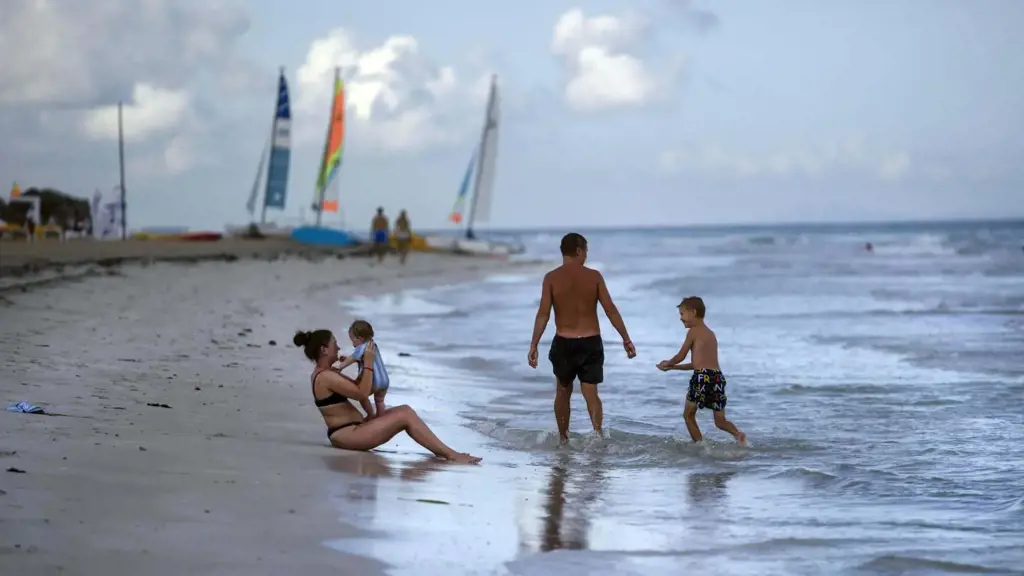
The current restrictions on travel between the United States and Cuba have been a topic of interest for many individuals. As of now, there are some limitations in place that individuals should be aware of before planning a trip to Cuba.
One of the main restrictions is the requirement for travelers to have a valid reason for visiting Cuba. In 2019, the United States implemented new travel regulations that eliminated popular categories such as people-to-people educational travel and individual people-to-people travel. However, there are still eligible categories that travelers can choose from, including family visits, official government business, journalistic activities, professional research, religious activities, public performances, and educational activities.
In addition to having a valid reason for visiting Cuba, travelers also need to be mindful of the financial restrictions in place. As of June 2019, the United States government banned cruise ships, private yachts, and recreational vessels from traveling to Cuba. This means that individuals cannot travel to Cuba on a cruise ship or by private yacht for tourism purposes. However, commercial airline flights are still allowed, and many airlines offer direct flights to Cuba from various U.S. cities.
Furthermore, monetary transactions also have restrictions. The United States government has imposed limits on the amount of money that can be spent in Cuba. Travelers can bring up to $400 worth of goods, including up to $100 worth of alcohol and tobacco products, for personal use. Additionally, travelers are prohibited from staying in certain hotels and accommodations that are on the restricted list issued by the Cuban government.
It is important for travelers to note that these restrictions can change, and it is essential to stay updated with the latest travel advisories and regulations before planning a trip to Cuba. It is recommended to consult with travel agencies or the U.S. Embassy or Consulate for the most accurate and up-to-date information regarding travel restrictions and requirements.
In conclusion, there are certain restrictions in place for travel between the United States and Cuba. Travelers must have a valid reason for visiting Cuba, adhere to financial restrictions, and comply with the restricted hotel list issued by the Cuban government. It is imperative to stay informed about the current travel regulations and consult with relevant authorities to ensure a smooth and compliant trip to Cuba.
Understanding Allegiant Travel's Current Restrictions: What You Need to Know
You may want to see also

How have recent changes in US policy affected travel to and from Cuba?
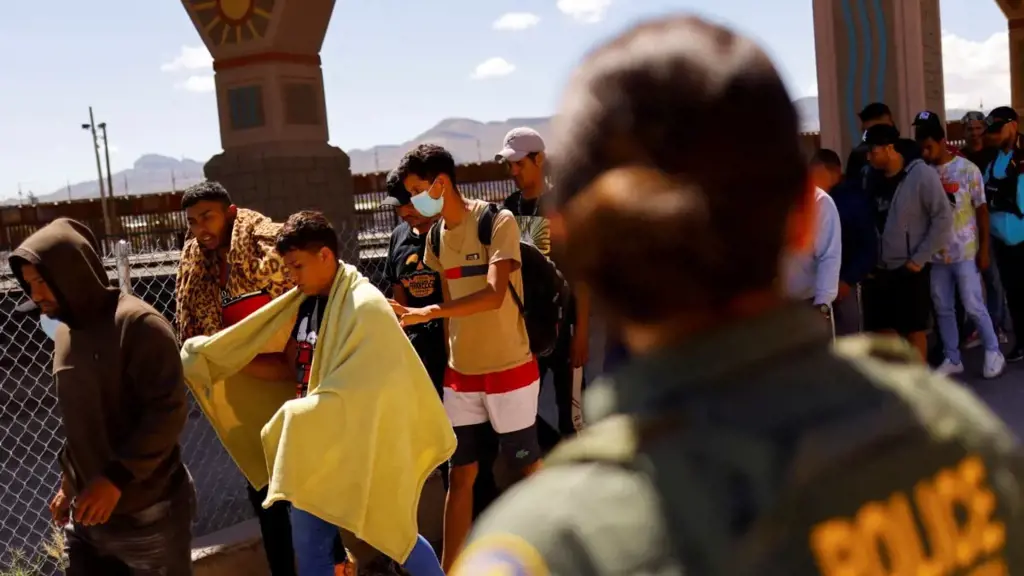
In recent years, the relationship between the United States and Cuba has experienced several changes in terms of travel policies. These changes have had a significant impact on travel to and from Cuba, affecting both American citizens and Cuban nationals.
One of the most notable changes occurred in 2014 when former President Barack Obama announced the restoration of diplomatic relations between the two countries after decades of tension. This led to a relaxation of travel restrictions, allowing American citizens to visit Cuba for specific purposes, such as family visits, educational activities, religious missions, and humanitarian projects. This change opened up new opportunities for cultural exchange and tourism, with American tourists flocking to Cuba to explore its vibrant cities, beautiful beaches, and rich history.
However, in 2017, there was a shift in US policy towards Cuba under the administration of President Donald Trump. The Trump administration implemented new restrictions on travel to the island nation, aiming to roll back the Obama-era policies. These restrictions were aimed at limiting economic benefits to the Cuban government and tightening travel regulations. The policy changes made it more difficult for Americans to travel to Cuba, limiting the authorized categories of travel and banning cruise ship visits to the island.
The changes in US policy had a significant impact on the Cuban tourism industry, as many American travelers canceled their plans or chose other destinations due to the uncertainty surrounding travel to Cuba. The restrictions also affected the Cuban economy, as tourism plays a crucial role in generating revenue and supporting local businesses. Furthermore, the restrictions limited the opportunities for cultural exchange and hindered the growth of private enterprises, such as bed and breakfast accommodations and restaurants, which had emerged in response to the increasing number of American tourists.
However, in recent months, there have been signs of a potential shift in US policy towards Cuba under the administration of President Joe Biden. The Biden administration has expressed a desire to review the policies implemented by the previous administration and to explore opportunities for engagement with the Cuban government and people. While it is still early in his presidency, there is hope that the restrictions on travel to Cuba may be eased or modified in the coming years, opening up new opportunities for travel and tourism between the two countries.
Overall, the recent changes in US policy towards Cuba have had a significant impact on travel to and from the island. American tourists have faced uncertainties and restrictions, impacting the tourism industry and the Cuban economy. However, there is optimism that the new administration may bring about positive changes, revitalizing the travel and tourism sector and fostering greater engagement between the United States and Cuba. Only time will tell how these policy changes will continue to shape the future of travel to and from Cuba.
Exploring Belgium Amidst Travel Restrictions: A Guide to Navigating the Current Travel Landscape
You may want to see also

Are there any exceptions to the travel restrictions for certain groups or purposes?
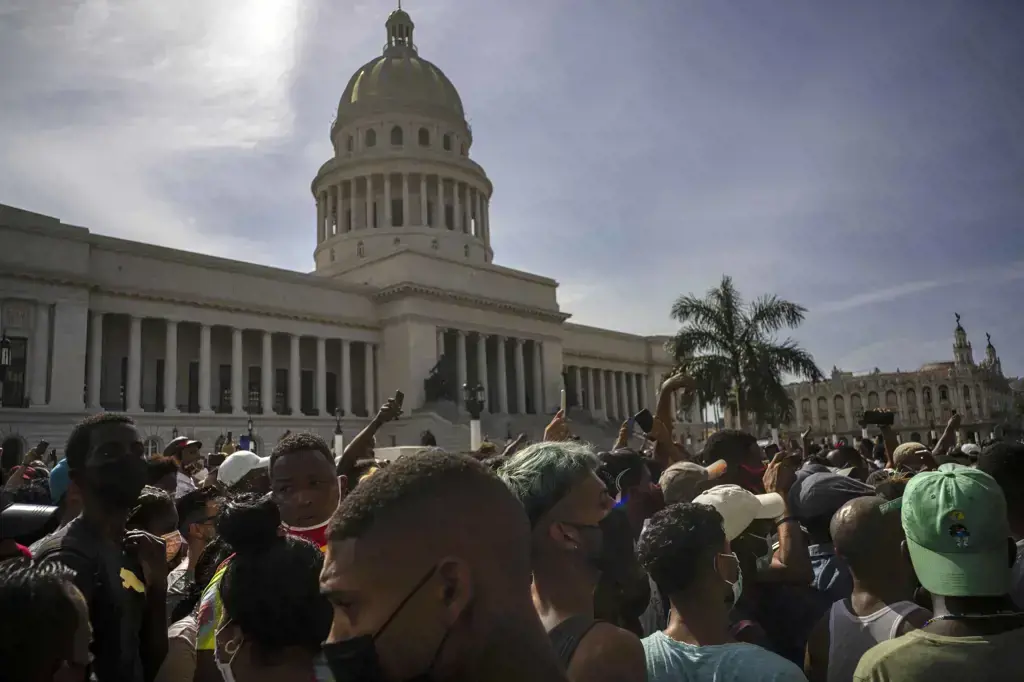
In an effort to control the spread of COVID-19, many countries have implemented travel restrictions and border control measures. While these measures are necessary to protect public health, there may be exceptions to the travel restrictions for certain groups or purposes.
One common exception is for essential workers. In many countries, essential workers such as healthcare professionals, emergency responders, and critical infrastructure workers are exempt from travel restrictions. These individuals play a vital role in ensuring the functioning of essential services and are allowed to travel between countries to carry out their work. However, they may be subject to additional screening or testing requirements upon arrival.
Another exception is for people who need to travel for medical reasons. If someone requires urgent medical treatment that is not available in their home country, they may be allowed to travel to another country to receive the necessary care. This could include treatments such as organ transplants, specialized surgeries, or clinical trials. In these cases, individuals may need to provide proof of their medical need and may be required to adhere to strict quarantine measures upon arrival.
Some countries also allow for compassionate reasons to travel despite the restrictions. For example, if a family member is seriously ill or has passed away in another country, individuals may be granted permission to travel to be with their loved ones or attend funeral services. Similarly, couples who are in long-distance relationships may be allowed to reunite if they can demonstrate the legitimacy of their relationship.
Additionally, some countries have implemented travel corridors or bubbles with specific regions or countries that have low COVID-19 transmission rates. These travel arrangements allow for easier movement between these areas without the need for quarantine upon arrival. This can facilitate essential business travel or offer opportunities for tourism in a controlled and safe manner.
It is important to note that the specific exceptions to travel restrictions vary by country and are subject to change based on the evolving situation of the pandemic. Travelers seeking to benefit from any exceptions should consult the official government websites or reach out to the relevant embassies or consulates to determine if they are eligible for any exemptions.
While travel restrictions are an important tool in controlling the spread of COVID-19, governments recognize that certain circumstances require travel. By allowing exceptions for essential workers, medical reasons, compassionate grounds, and through travel corridors, countries can strike a balance between safeguarding public health and accommodating necessary travel.
What You Need to Know About Travel Restrictions to St. Maarten
You may want to see also

What are the limitations on remittances to Cuba from the United States?
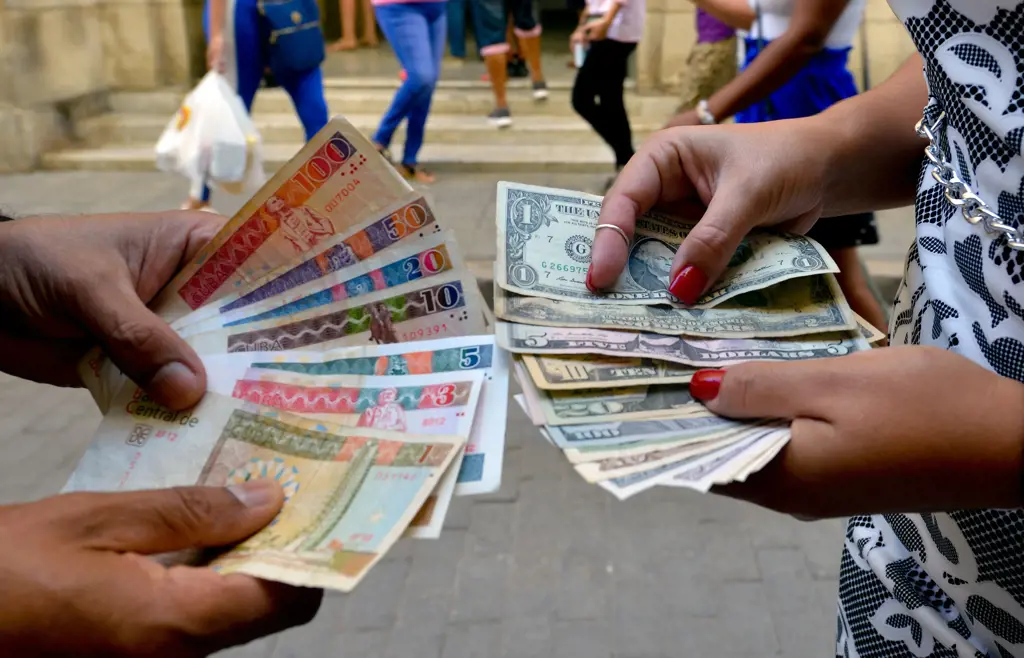
Cuba is known for its close ties to the United States, as well as its complex relationship with the rest of the world. As such, there are certain limitations on remittances to Cuba from the United States that must be navigated by those looking to send money to family or friends on the island.
The United States government has imposed various restrictions on remittances to Cuba over the years, with the intention of putting pressure on the Cuban government to enact democratic reforms. These restrictions have included limits on the amount of money that can be sent, as well as restrictions on who can send money and how it can be sent.
Currently, there is a limit of $1,000 per quarter that can be sent to individuals in Cuba from the United States. This limit applies to both cash and non-cash remittances, such as the purchase of goods or services. However, there are exceptions to this limit for certain types of remittances, including those made by certain individuals and organizations.
Additionally, not everyone is able to send remittances to Cuba from the United States. In general, only individuals who are either Cuban nationals or have family members who are Cuban nationals are eligible to send remittances. Non-Cuban nationals who have a permanent residency in the United States are also eligible to send remittances. However, it is important to note that these restrictions can be subject to change, so it is always a good idea to check with the relevant authorities before sending money.
There are also restrictions on how remittances can be sent to Cuba. Currently, remittances can be sent through licensed money transfer providers, as well as through certain financial institutions, such as banks and credit unions. However, the use of cryptocurrency or other digital currencies to send remittances to Cuba is not allowed.
In addition to these limitations, it is worth noting that there may be fees and taxes associated with sending remittances to Cuba from the United States. These fees vary depending on the method of transfer and the amount being sent, so it is important to take these into account when sending money.
Overall, while there are limitations on remittances to Cuba from the United States, it is still possible to send money to loved ones on the island. By being aware of the current restrictions and following the necessary procedures, individuals can ensure that their remittances reach their intended recipients in a legal and secure manner.
Biden Announces New Travel Restrictions on Canada Amid Ongoing Pandemic Concerns
You may want to see also

Have there been any recent developments or proposed changes to the restrictions on travel and remittances between the US and Cuba?
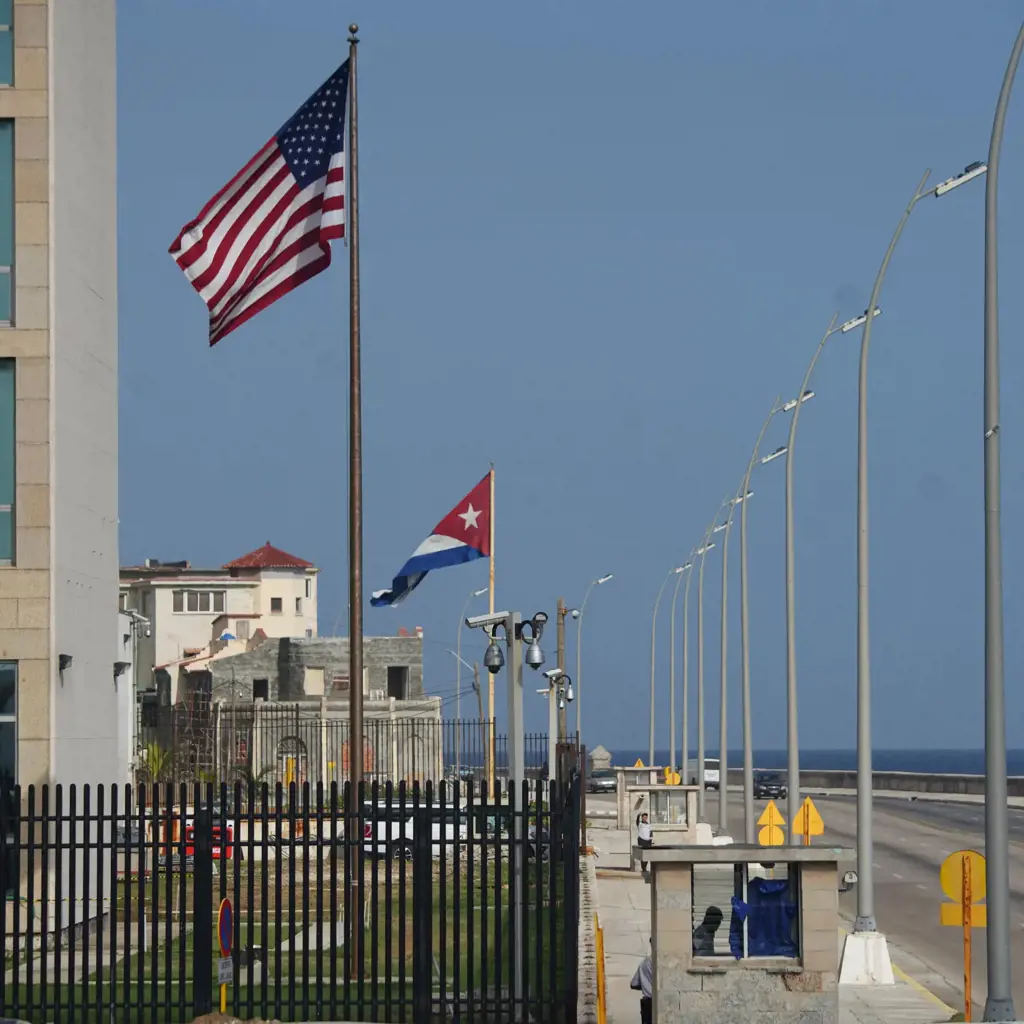
As of now, there have been no recent developments or proposed changes to the restrictions on travel and remittances between the US and Cuba. The current regulations governing travel and remittances to Cuba were implemented by the Obama administration in 2014 and have remained in place since then.
Under the current regulations, US citizens are allowed to travel to Cuba for specific purposes, such as family visits, official government business, educational activities, journalistic activity, professional research, and certain humanitarian projects. However, general tourism to Cuba for leisure purposes is still prohibited.
In terms of remittances, there are restrictions on the amount of money that can be sent to Cuba. Individual travelers can bring up to $400 worth of goods from Cuba, including $100 worth of tobacco and alcohol products. The amount of money that can be sent to Cuba by individuals is capped at $1,000 per quarter.
These regulations were aimed at promoting engagement and people-to-people contact between the US and Cuba. However, there have been calls from some members of Congress and advocacy groups to ease these restrictions further and to lift the travel ban entirely. Proponents argue that increased tourism and remittances could help to improve the living standards of the Cuban people and promote democratic reforms.
However, opponents of further easing restrictions argue that the Cuban government continues to violate human rights and suppress political dissent, and therefore, any further engagement with Cuba should be conditional on improvements in these areas.
It is unclear when or if there will be any changes to the current restrictions on travel and remittances between the US and Cuba. The Biden administration has not yet announced any specific policy changes in this regard, and it remains to be seen what approach they will take towards US-Cuba relations.
In the meantime, US citizens who wish to travel to Cuba for authorized purposes must continue to abide by the current regulations and ensure that their travel falls within one of the allowed categories. Similarly, individuals sending remittances to Cuba must comply with the existing limits on the amount of money that can be sent. Any changes to these regulations would require action by the US Congress or the executive branch.
Navigating the Latest CRA Travel Restrictions: What You Need to Know
You may want to see also
Frequently asked questions
Yes, there are still some travel restrictions between the United States and Cuba. In 2019, the Trump administration imposed restrictions on non-family travel to Cuba, effectively limiting it to organized group tours. However, the Biden administration is expected to review and potentially relax these restrictions in the future.
Yes, it is still possible to send money to Cuba from the United States. However, the Trump administration imposed restrictions on remittances in 2020, limiting the amount of money that can be sent per quarter to $1,000 per person. These restrictions were implemented to put pressure on the Cuban government, and it is uncertain if they will be lifted or modified in the future.
Under the current travel restrictions, it is not possible to travel to Cuba solely for tourism purposes. However, travel to Cuba is allowed for certain reasons, such as family visits, official government business, journalistic activity, professional research, and educational activities. It is important to check the specific requirements and obtain the necessary licenses or authorizations before traveling to Cuba from the United States.
Cuban-Americans have certain exemptions from the travel restrictions imposed on non-family travel to Cuba. They are allowed to visit family members in Cuba and are not required to be part of an organized group tour. However, they still need to comply with other requirements, such as obtaining a visa or travel authorization, and they may be subject to limitations on the amount of money they can spend or send to Cuba.
As of 2016, there are no longer restrictions on bringing Cuban rum and cigars back to the United States for personal use. However, the importation of Cuban rum and cigars for commercial purposes is still prohibited. Travelers are allowed to bring back up to 100 cigars and up to $100 worth of Cuban rum for personal consumption. It is important to note that these rules may change, so it is always a good idea to check the latest regulations before traveling.







